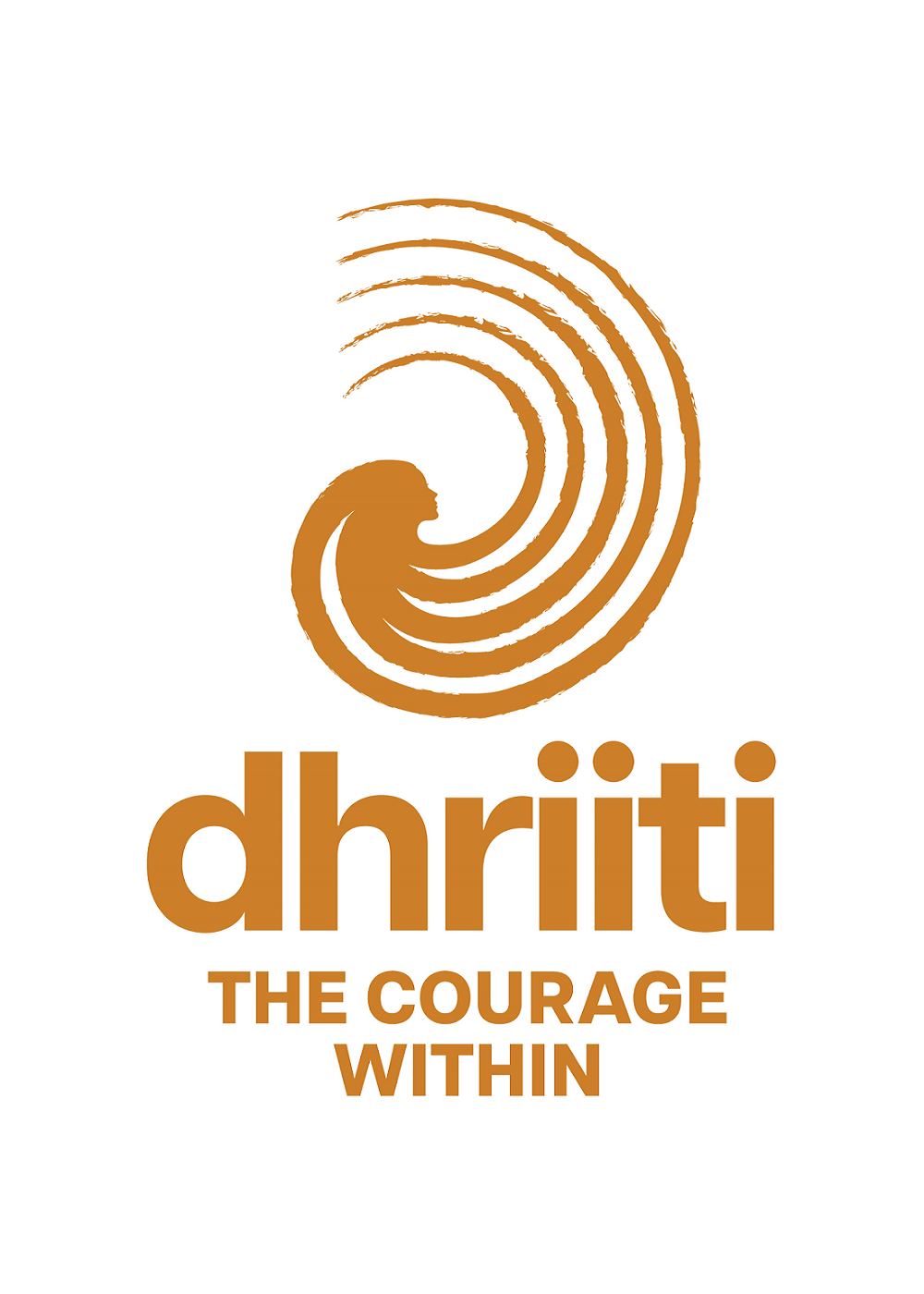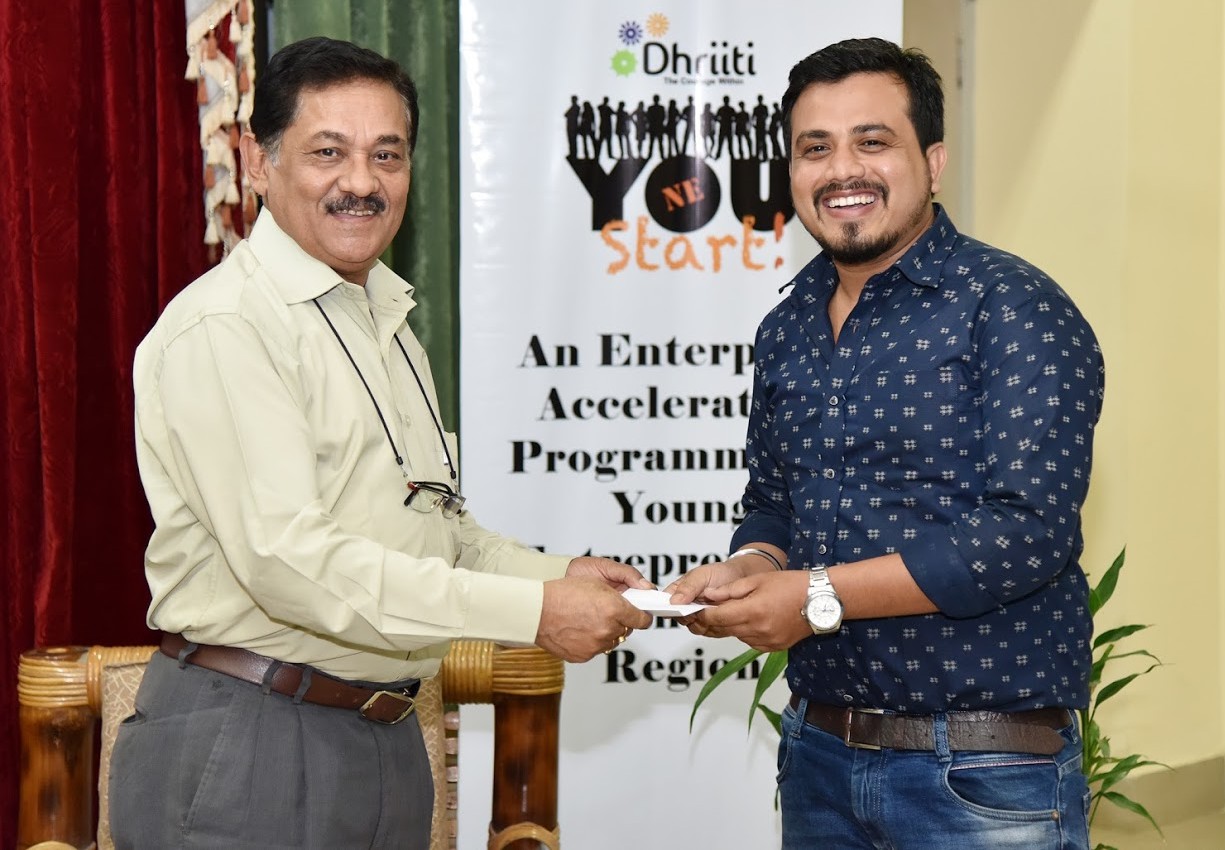
Dhriiti You Start! NE – Entrepreneur Awards 2018
YOU Start! NE – Enterprise Acceleration Programme for Youth Entrepreneurs – is an initiative dedicated to promoting youth entrepreneurship in North East India. After receiving approximately 100 application from states covering Assam, Meghalaya, Mizoram, Nagaland, Tripura and Manipur, we shortlisted and trained 52 young entrepreneurs from this region in 3 different cities i.e. Shillong, Guwahati and Dimapur. This was followed by mentoring support to each of the trained entrepreneur to enable them to develop robust enterprise plans, providing them with a solid foundation to sustain and grow their enterprises. 11 entrepreneurs were selected after the Ist round of Business Plan competition. This was followed by 12 weeks of mentoring support to accelerate their businesses. We are gearing up for the final event where 8 young entrepreneurs will be competing. The competition will be two segments one which is online voting and second is business pitches.
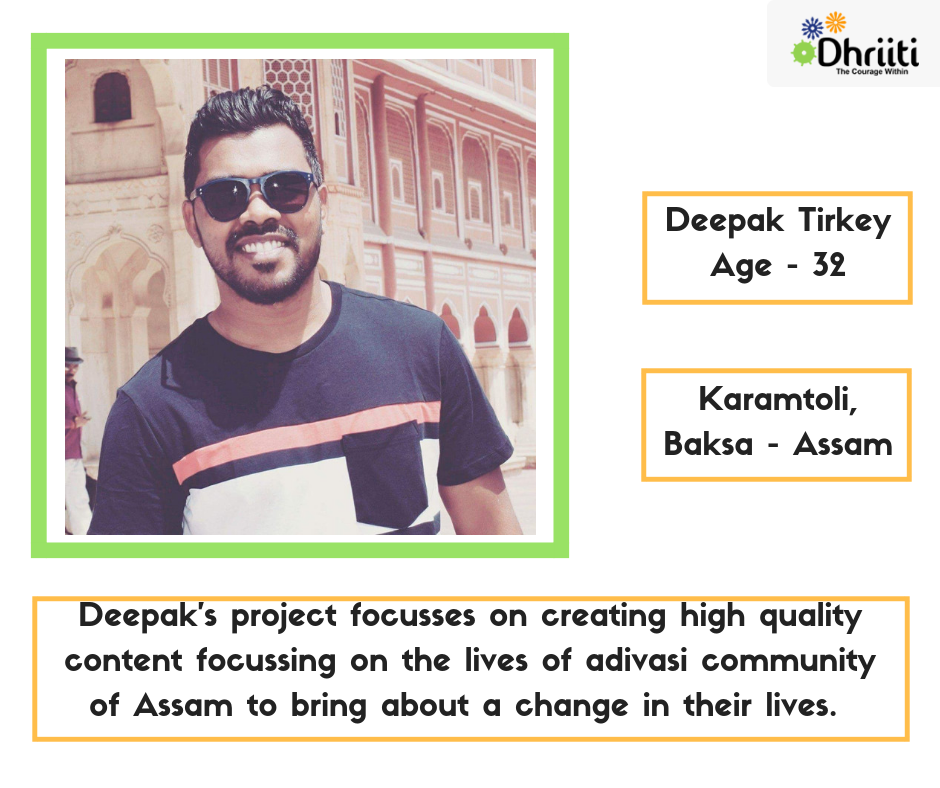 Deepak comes from the adivasi community of a small village of Baksa district of Assam. He completed his graduation from St. Anthony’s College, Shillong in Mass Communication and Video Production. He worked for 6 years in NDTV as an associate producer. But he longed to return back to his home and produced short films in Sadri language (native) portraying the stories of this region. In this process, he started his venture Westudios, an animation and video production company that aims to create quality content focusing on the Adivasi community of Assam. The basic idea is to create and produce audio-visual regional content in the realms of the performing arts, new media art, film, television, video, animation, design, etc.
Deepak comes from the adivasi community of a small village of Baksa district of Assam. He completed his graduation from St. Anthony’s College, Shillong in Mass Communication and Video Production. He worked for 6 years in NDTV as an associate producer. But he longed to return back to his home and produced short films in Sadri language (native) portraying the stories of this region. In this process, he started his venture Westudios, an animation and video production company that aims to create quality content focusing on the Adivasi community of Assam. The basic idea is to create and produce audio-visual regional content in the realms of the performing arts, new media art, film, television, video, animation, design, etc.
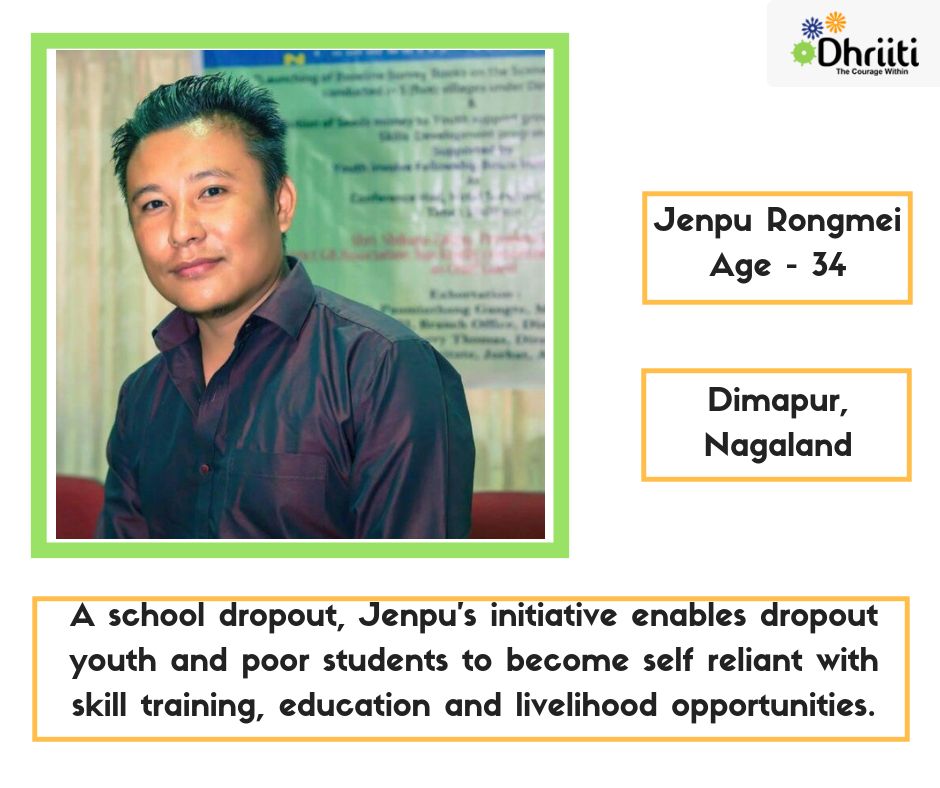 Jenpu is from Dimapur, Nagaland. Growing up, Jenpu has witnessed many hardships, which led him to the idea of ‘CAN Youth’. He believes it is his social responsibility to work with the youth and children living with difficult circumstances. CAN Youth was established in 2012 with the sole aim to support the inopportune dropout youth and students from below poverty line (BPL) in Dimapur district of Nagaland. The organization is currently focusing on establishing Information and Resource Centre to provide services on education, skill, job opportunity, and entrepreneurship through various avenue and linkages for sustainability development.
Jenpu is from Dimapur, Nagaland. Growing up, Jenpu has witnessed many hardships, which led him to the idea of ‘CAN Youth’. He believes it is his social responsibility to work with the youth and children living with difficult circumstances. CAN Youth was established in 2012 with the sole aim to support the inopportune dropout youth and students from below poverty line (BPL) in Dimapur district of Nagaland. The organization is currently focusing on establishing Information and Resource Centre to provide services on education, skill, job opportunity, and entrepreneurship through various avenue and linkages for sustainability development.
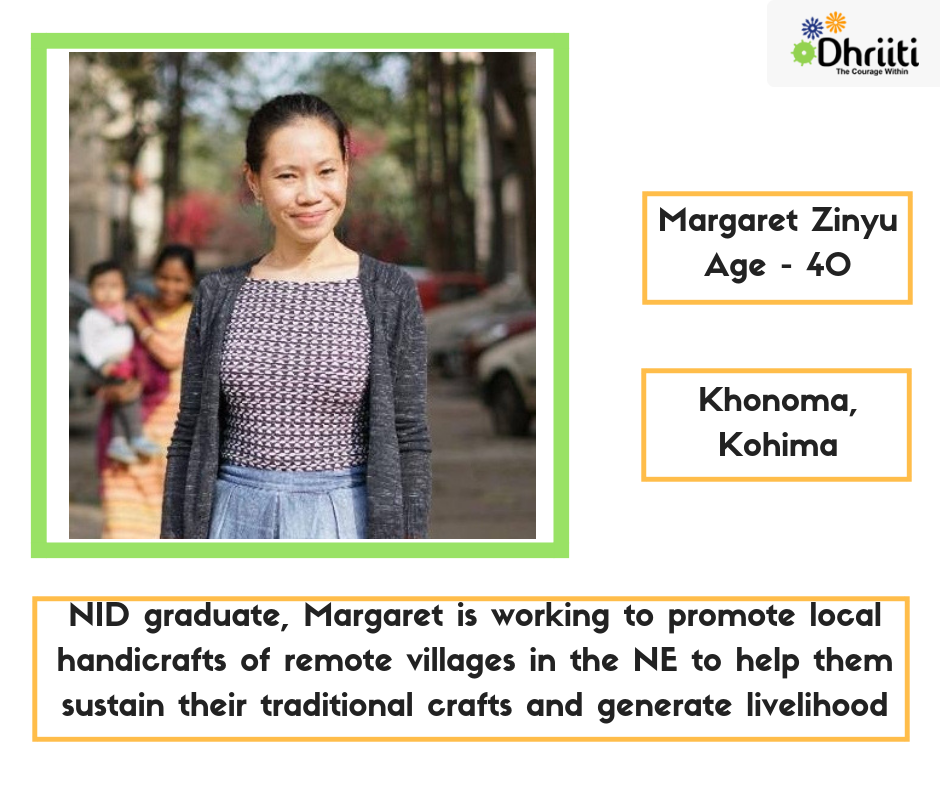 A NID Ahmedabad graduate, Margaret was always passionate about textiles. After working in the corporate sector of design for 8 years, she headed back home and decided to work in the craft industry. She set up Studio Predilection in 2015 with a belief that crafts is the second largest source of income for rural people in North East India and sustaining these skills as livelihood will create more employment generation. That way the indigenous traditions of Naga Crafts will also thrive for a better future. ‘Woven Threads’ is the label under Studio Predilection, which sells Handcrafted artisanal, contemporary, finesse, stylish and comfortable home furnishing products.
A NID Ahmedabad graduate, Margaret was always passionate about textiles. After working in the corporate sector of design for 8 years, she headed back home and decided to work in the craft industry. She set up Studio Predilection in 2015 with a belief that crafts is the second largest source of income for rural people in North East India and sustaining these skills as livelihood will create more employment generation. That way the indigenous traditions of Naga Crafts will also thrive for a better future. ‘Woven Threads’ is the label under Studio Predilection, which sells Handcrafted artisanal, contemporary, finesse, stylish and comfortable home furnishing products.
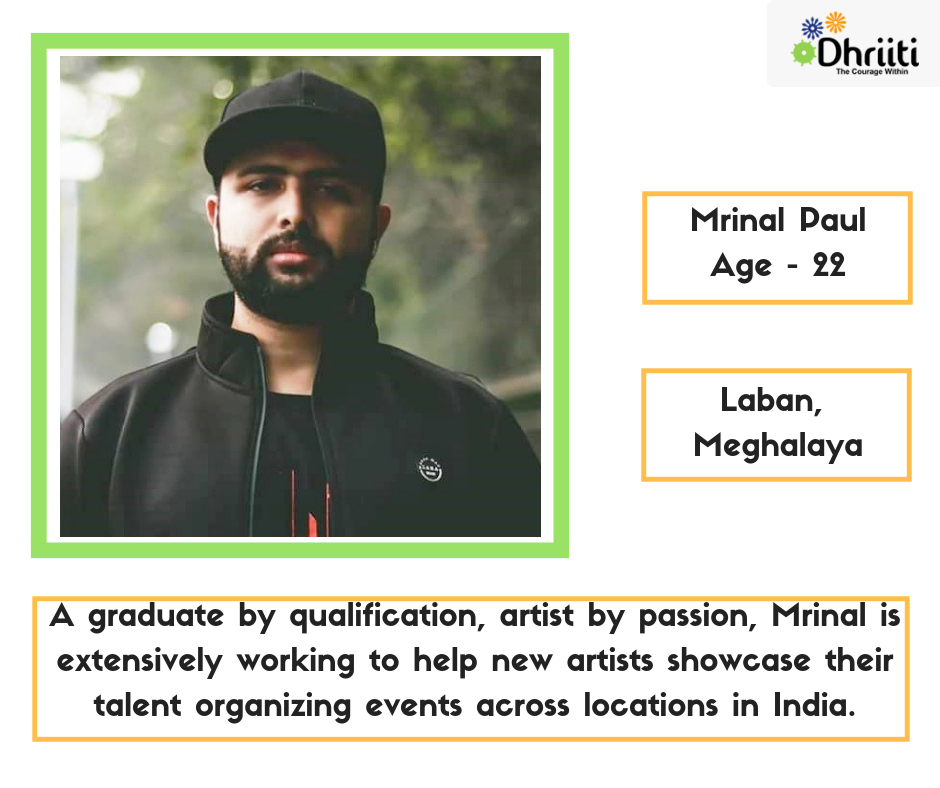 Mrinal, a graduate from Laban, Shillong, Meghalaya is an artist at heart and understands thoroughly the challenges that artists face. This led him to create an artists’ collective in 2016, which today has expanded into a talent and event management entity called MOX. The talent management agency is working with talents across the North Eastern region. MOX explores talents, builds their presence digitally, and curates LIVE opportunities for them to showcase their skills. The agency aims to showcase its artists across India and South-East Asia by next year.
Mrinal, a graduate from Laban, Shillong, Meghalaya is an artist at heart and understands thoroughly the challenges that artists face. This led him to create an artists’ collective in 2016, which today has expanded into a talent and event management entity called MOX. The talent management agency is working with talents across the North Eastern region. MOX explores talents, builds their presence digitally, and curates LIVE opportunities for them to showcase their skills. The agency aims to showcase its artists across India and South-East Asia by next year.
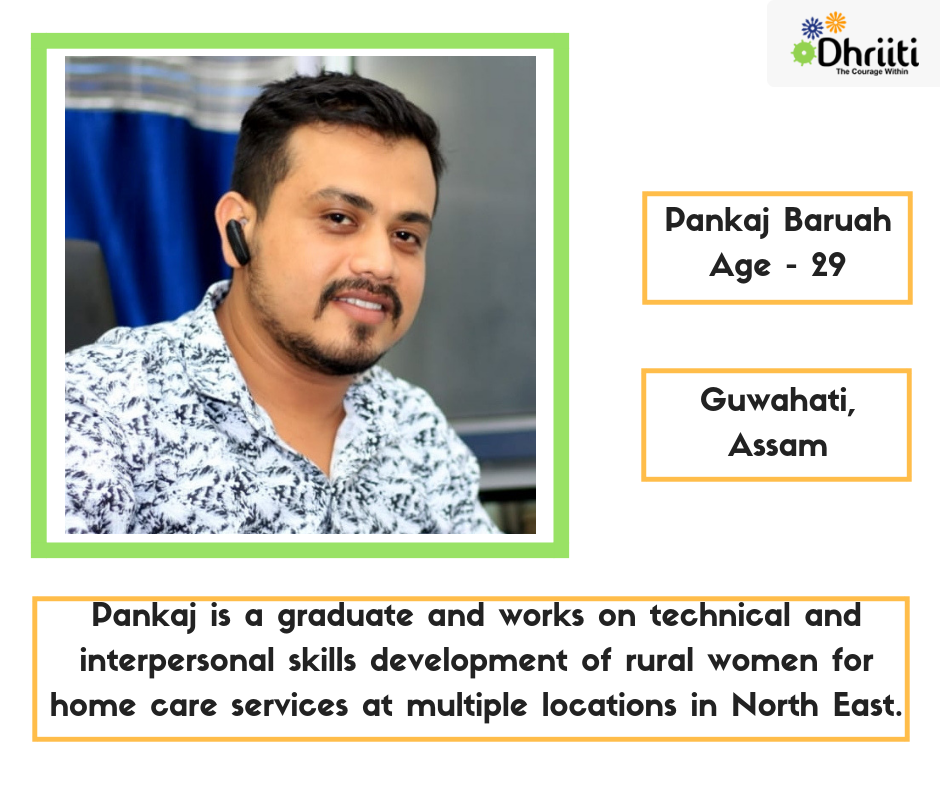 Pankaj is the Director of Maitri, a domestic service placement and management company which recruits, trains, and secures employment for women from underprivileged Northeast communities. “Sahayika” (caregiver in Hindi), the flagship program of Maitri is an initiative designed to build both the technical and interpersonal skills needed by domestic workers. The company also verifies that the prospective employer’s household does not have a history of issues with domestic service workers, sets clear expectations for the nature of work, and briefs the family on the prospective Sahayika’s background, skills, and employment preferences. Furthermore, Maitri takes this time to educate each Sahayika on her employee rights including a regular salary, paid leave, a bank account, and other benefits enjoyed by her service sector counterparts.
Pankaj is the Director of Maitri, a domestic service placement and management company which recruits, trains, and secures employment for women from underprivileged Northeast communities. “Sahayika” (caregiver in Hindi), the flagship program of Maitri is an initiative designed to build both the technical and interpersonal skills needed by domestic workers. The company also verifies that the prospective employer’s household does not have a history of issues with domestic service workers, sets clear expectations for the nature of work, and briefs the family on the prospective Sahayika’s background, skills, and employment preferences. Furthermore, Maitri takes this time to educate each Sahayika on her employee rights including a regular salary, paid leave, a bank account, and other benefits enjoyed by her service sector counterparts.
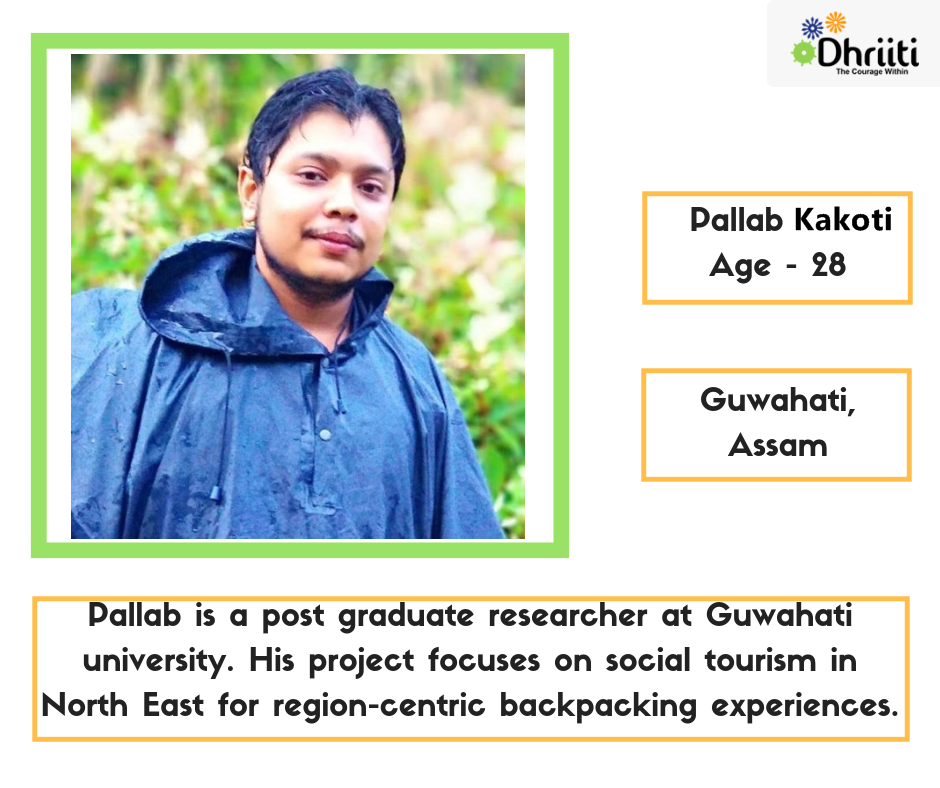 Pallab is a Post Graduate Researcher at Guwahati University. During the study of human capabilities, he realized that life is a constant pursuit of happiness. Some transcend to higher levels and associate their happiness with others. It was during a travel with his friends from abroad, who made him realize the potentiality of this region in terms of nature, resources available and the distinct yet varied culture. In 2017, he formed Eastern Wave, a community-powered tourism showcasing the culture and nature of Northeast India. Soon Pallab and his team started organizing camping trips and mainly catered to international backpackers as the company exactly offered the kind of experience these backpackers desire. Eastern Wave focusses on community-powered Tourism showcasing the Culture and Nature of Northeast India.
Pallab is a Post Graduate Researcher at Guwahati University. During the study of human capabilities, he realized that life is a constant pursuit of happiness. Some transcend to higher levels and associate their happiness with others. It was during a travel with his friends from abroad, who made him realize the potentiality of this region in terms of nature, resources available and the distinct yet varied culture. In 2017, he formed Eastern Wave, a community-powered tourism showcasing the culture and nature of Northeast India. Soon Pallab and his team started organizing camping trips and mainly catered to international backpackers as the company exactly offered the kind of experience these backpackers desire. Eastern Wave focusses on community-powered Tourism showcasing the Culture and Nature of Northeast India.
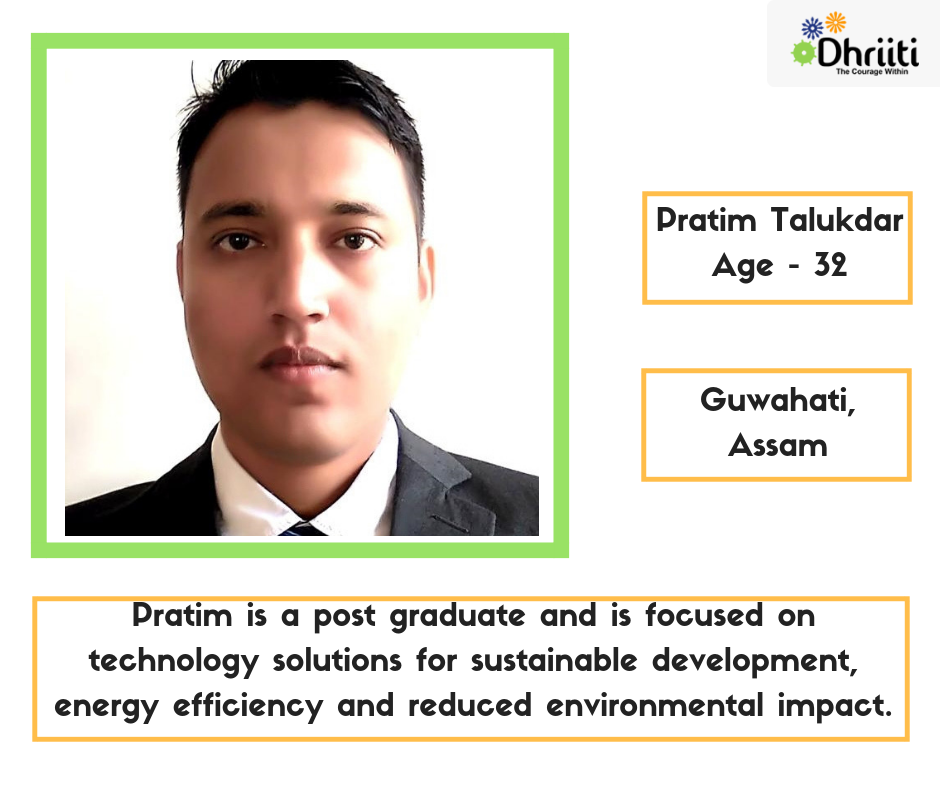 An engineering graduate, Pratim has worked in the power industry for more than 7 years. He was actively associated with the technical and commercial aspects of the power industry. During his job stint, he realized the gap in the market and started working for the possible solutions to address those gaps. In 2016, he decided to become a full-fledged entrepreneur and founded Zinzid Technologies, which works with a vision to create technology solutions for sustainable development, primarily focusing on the energy efficiency of the customers and to reduce their environmental footprints. The company provides economic benefits to the customers, besides supporting the larger environmental goals.
An engineering graduate, Pratim has worked in the power industry for more than 7 years. He was actively associated with the technical and commercial aspects of the power industry. During his job stint, he realized the gap in the market and started working for the possible solutions to address those gaps. In 2016, he decided to become a full-fledged entrepreneur and founded Zinzid Technologies, which works with a vision to create technology solutions for sustainable development, primarily focusing on the energy efficiency of the customers and to reduce their environmental footprints. The company provides economic benefits to the customers, besides supporting the larger environmental goals.
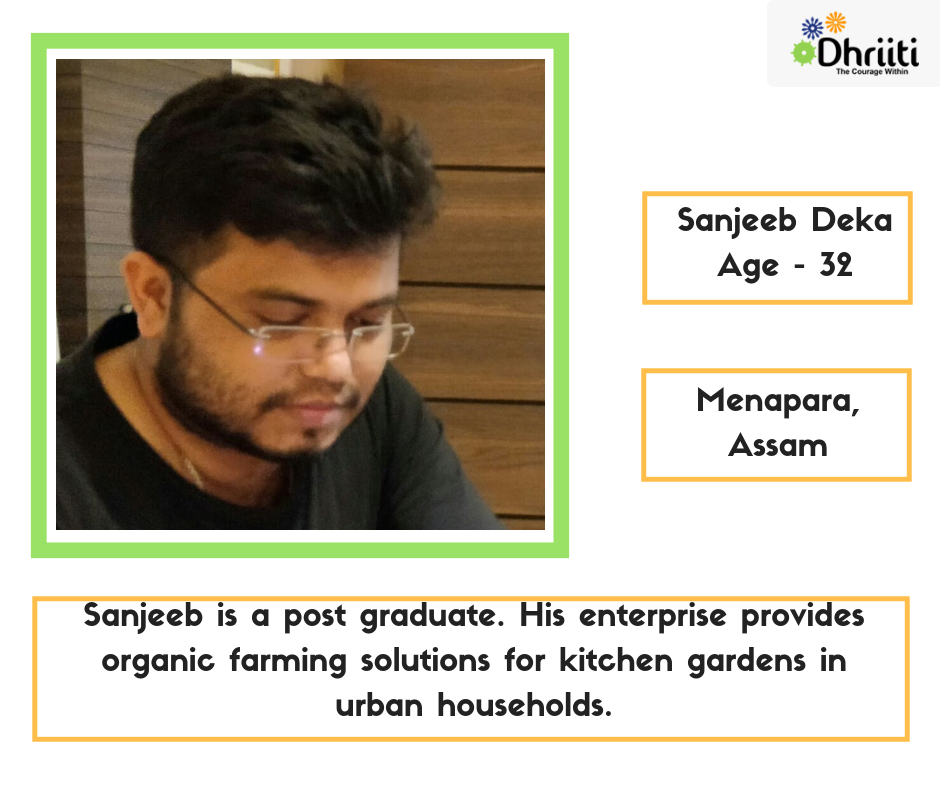 Sanjeeb comes from Menapara village of Daring district in Assam. After one of his family relatives achieved good health by using organic vegetables; he realized that organic vegetables have better nutritional value, improves health and also promoted to environmental sustainability. While working with Diya Foundation, Sanjeeb got an opportunity to practice organic farming in kitchen gardens in villages. He realized that urban households today are more inclined towards fresh organic fruits and vegetables. This idea gave birth to his venture, O-Kheti that presently sells a package of products and the services. The process is cost-effective and low-maintenance. Moreover one is aware that the best quality vegetables are being consumed by the family.
Sanjeeb comes from Menapara village of Daring district in Assam. After one of his family relatives achieved good health by using organic vegetables; he realized that organic vegetables have better nutritional value, improves health and also promoted to environmental sustainability. While working with Diya Foundation, Sanjeeb got an opportunity to practice organic farming in kitchen gardens in villages. He realized that urban households today are more inclined towards fresh organic fruits and vegetables. This idea gave birth to his venture, O-Kheti that presently sells a package of products and the services. The process is cost-effective and low-maintenance. Moreover one is aware that the best quality vegetables are being consumed by the family.
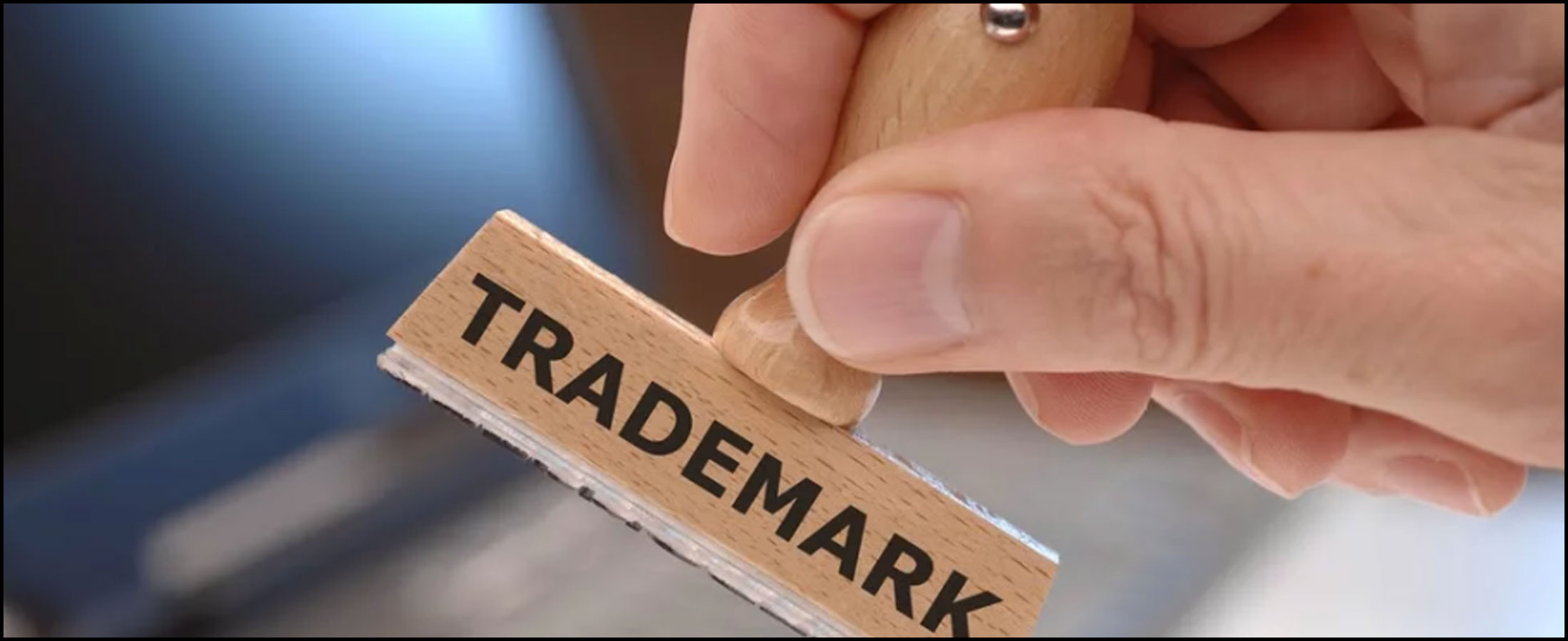
What are the steps involved and the costs to register a trademark in India?
The official fee charged by the Indian trademark office is Rs.4500 (Individuals, Startups and Small and Medium Enterprises – SME’s) and Rs.9000 (for others) per mark per class. The professional charges start from Rs.1999 and upwards depending on your service provider. It is as simple as deciding to have pani poori from your street corner vendor or having it at a five-star hotel. What’s important to be considered in choosing your service provider [as with any service] is the experience and quality of service one offers.
Your brand is the most valuable asset of your business and you should take some time to choose the right service provider. You can ask your service provider to provide you with a list of trademark they have helped register. Trademark records and their details are made available to the public and your service provider should be able to provide you this without any hassles. You can then cross check a few application numbers at the Indian trademark office website by keying in the application numbers.
Another major issue faced by trademark owners in India is that every tom dick and harry offers trademark filing. Yes, they offer filing, not registration. While I appreciate the fact that several designers, domain name registrants, accountants, engineers, and CA’s offer this as an extended service to their clients, it is unfortunate that quite a few of these service providers learn trademark law at the cost of their clients. It is also important to understand that obtaining a registration for a trademark in India involves several steps and it is not merely a form filling job. You should ask your service provider to provide you with the other costs, if any, from filing to registration. In many cases the trademark owner is in for a surprise with additional costs at a later date when objections are raised by the trademark office or oppositions are filed by third parties.
Let’s understand the steps involved in getting your trademark registered in India.
- Selecting a mark
- Classification of goods or services
- Search the trademark office records
- Filing the application
- Responding to objections from the trademark office
- Advertisement in the trademark journal
- Handling opposition by third parties
- Registration
- Maintenance or Renewal
Selecting a trademark is one of the toughest job for the trademark owner. This is going to be your brand and changing it later is not going to be easy. After several brainstorming sessions, you choose the right brand name for your business. Now that you have come up with a brand name it’s important to do a trademark search.
Classification of goods of services is very important for you to protect your trademark for the right goods of services you offer under your trademark. It is important that your service provider understands your business well before deciding to select the classes in which the trademark should be protected. For example, your trademark will fall under difference classes if you offer web app development services vs having an app for the purposes of selling goods online.
Trademark Search is the process where the records of the trademark office are searched for the same or similar marks in the classes of your choice to see if anyone has filed for similar marks earlier than you. Additionally, it is advisable to do a general Internet search as well. Several countries including India are not a first to file but rather a first to use country. This means that whoever uses the trademark first gets more rights than the one who filed for an application with the Indian trademark office.
Thought trademark rights are territorial, technology has made the world a small place. Hence, it is advisable to run a Global search in whichever jurisdictions possible. Several trademark office databases are available online with free access.
A good thumb rule we follow at our firm is to check if a .com domain name is available for your trademark. If it’s not available, then it’s a red flag that needs to be considered. Many times, the domain names are merely parked and not used.
Costs for a trademark search: [Professional fees range from Rs.500 to 2500 per trademark per class along with a professional opinion+ No official fees.]
Filing the application may be one of the easiest one once the above steps are done properly. It’s like as getting your foundation in place before you start building your house. However, it is important to put in the right information in your application to avoid any objections by the trademark office on a later date. This obviously comes with experience.
[Professional fees range from Rs.999 and upwards per trademark per class + Rs.4500/9000 as official fees per mark per class.] Timeline: 1 to 2 days.Objections are raised by the trademark office when they examine your application to register your trademark and the same should be responded to and complied within one month from the date of such objections. Most of these objections can be avoided when the same is foreseen at the time of classification and trademark search by your service provider. This not only saves costs but a lot of time in the process of getting your trademark registered in India.
[Professional fees ranges from Rs.1499 and upwards per trademark per class. No Official fees] Timeline: 1 to 2 months from the date of filing your application.Advertisement of the application in the journal is because any third party can oppose to the registration of your mark on several grounds. The most common one being that your mark is like their mark. Opposition proceedings are long and costly and could be avoided by following the right strategy before filing the application. Timeline: 4 months from the date of advertising the application.
Registration is granted in the absence of any opposition within 4 months from the date of advertisement. The registration is valid for a period of 10 years from the date of the application. You should start using the ® symbol on your trademark immediately. Timeline: A week after expiry of the opposition period and in
the absence of any opposition.
Renewal of a trademark in India can be filed six months prior to its expiry date. The renewal grants another 10 year protection to your rights on your trademarks. [Professional fees range from Rs.1999 and upwards per trademark per class + Rs.9000/class as official fees per mark per class.]
Your brand is your most prized asset and trademark rights are perpetual. It should be carefully coined, protected, and maintained. When you decide to file for an application to register your trademark keep these in mind in choosing your service provider.
If you have something to add to this article or comment on the same feel free to comment below or reach out to me by email.
Original content of the above blog can be read at: https://selvams.com/blog/steps-involved-costs-register-trademark-india/
